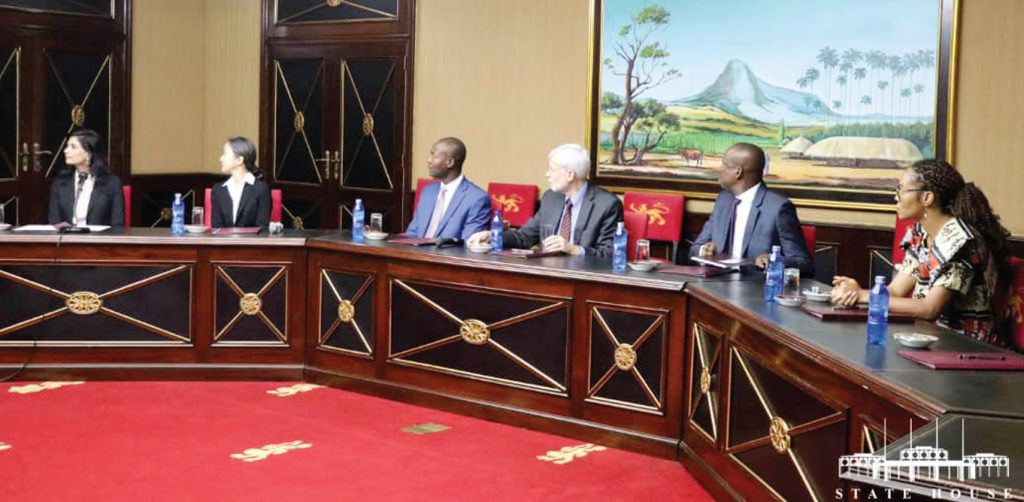IMF lauds progress on economic reforms
International Monetary Fund (IMF) country representative Nelnan Koumtingue has commended the country’s fiscal authorities for the progress made in implementing public finance management (PFM) reforms to restore macroeconomic stability.
In an interview on Thursday in Lilongwe, he said Malawi is still on track to achieve the targets set in the Memorandum of Economic and Fiscal Policies the Ministry of Finance and Economic Affairs signed with the global lender.

He said: “Malawi has taken some steady steps to track and protect its public resources. Right now, the Ministry of Finance and Economic Affairs has a dashboard that tracks how much revenue it has generated and how that revenue is spent every month.
“This is an important step to ensure transparency in the management of public resources. I am confident that we will have all these reforms in place.”
The commitments were originally made in the Memorandum of Fiscal and Economic Policies agreed with the IMF as part of the Staff-Monitored Programme with Limited Board Involvement and were carried over into the conditionality in the current $175 million (about K297 billion) four-year Extended Credit Facility (ECF).
Malawi missed its targets to roll out the full functionality of the Integrated Financial Management Information System (Ifmis) to all ministries, departments and agencies by the end of March 2023 and start publishing monthly Ifmis-generated comprehensive fiscal reports by the start of the 2023/24 financial year.
According to the memorandum, the Ifmis measures were designed to “ensure the new Ifmis delivers on accountability and efficiency in the execution of public finance management reforms”.
Reacting to the development, economic analyst Bond Mtembezeka urged the government to prioritise changing the mindset of public officials responsible for managing public funds because systems are only as good as the people using them.
He said: “There is a need to understand why the timelines have not been adhered to, but the bottom line is that there has to be a serious and genuine commitment by the government.”
In an earlier interview, anti-money laundering law expert Jai Banda called on the government to return to basic PFM principles in the absence of a fully integrated Ifmis to check against corruption and misprocurement.
He said: “It is the simple issues that can help the fight against corruption. Conducting due diligence on the prices quoted by industry averages and those of other competitors can help check against inflated prices in procurement contracts.
“The authorities can also check the shareholders of contractors to ensure that suppliers are not colluding on pricing.”
Minister of Finance and Economic Affairs Simplex Chithyola-Banda is on record as having said the government will continue improving the system in financial reporting, bank reconciliation, recording of government commitments and payment efficiency through a stable electronic funds transfer platform.
“Furthermore, through the department of the Accountant General, the government will continue rolling out additional system functionalities such as contract management, revenue management, asset management and project systems,” he said.
The IMF will hold semi-annual reviews to assess progress on agreed economic and financial policies. The first of these reviews is expected to take place in July.
Last week, an IMF team concluded its visit to Malawi where they discussed the progress of reforms with government and private sector representatives.
The IMF country report released in November last year showed that Malawi had missed some deadlines to implement key reforms such as the full installation of Ifmis.






Learn more about Top 10 Best Universities in USA, Latest Updates around universities in usa 2024.
I have been surfing online more than 3 hours today yet I never found any interesting article like yours It is pretty worth enough for me In my opinion if all web owners and bloggers made good content as you did the web will be much more useful than ever before